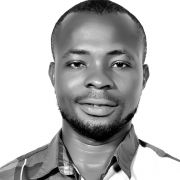9a nigeria attack CROP.jpg
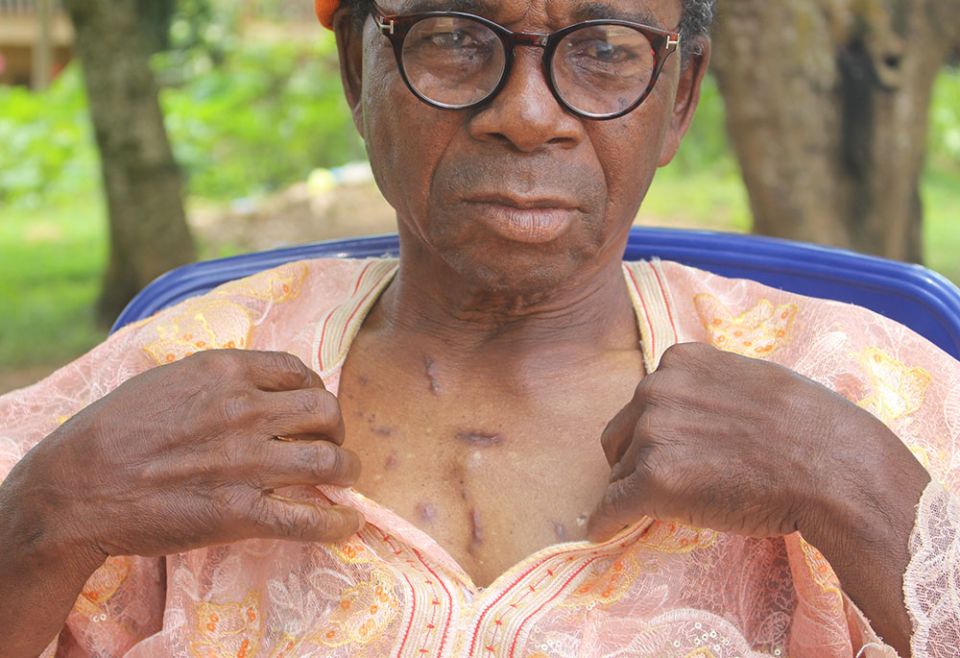
Owo, Nigeria — St. Louis Sr. Agnes Adeluyi remembered June 5 was a particularly hot afternoon, when she and her team of nurses labored to save the survivors of the church shooting in Owo, a city in the southwestern Nigerian state of Ondo. Covered in fatal gunshot wounds, the victims called for help as they were dying, Adeluyi recalled.
Four gunmen marched into St. Francis Xavier Catholic Church through the doors by the choir stands, shooting worshippers sporadically while detonating two* explosives inside. Forty-one parishioners — including young children — died in the gunfire and explosions, while some were trampled to death in the stampedes attempting escape.
7c nigeria attack CROP.jpg
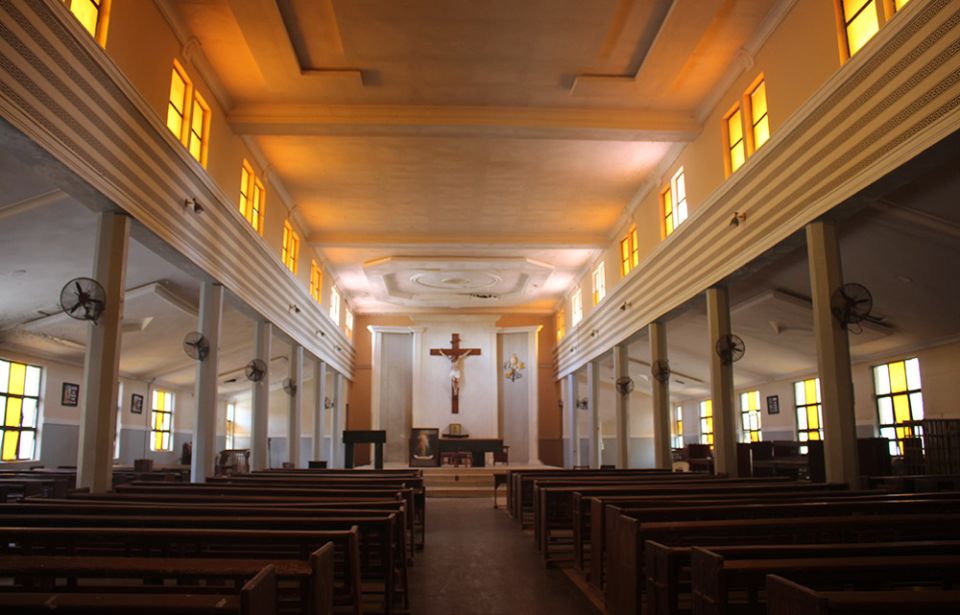
"We have been hearing of such incidents far away in the northern region of the country, but to have it happen within our own domain was very devastating," said Adeluyi, the nurse administrator of St. Louis Catholic Hospital, adding that it was an unthinkable occurrence for Pentecost Sunday.
The southwestern region where the mass shooting happened is home to the Yoruba ethnic group, where Christians and Muslims have long coexisted peacefully. But since 2000, that peace had become elusive due to the long-running ethnic violent clashes between the Fulani herdsmen and local farmers.
St. Louis Sr. Bukola Familade, who supported medical sisters at St. Louis Catholic Hospital, said the terror attack has "triggered palpable fear in us and have affected our ministries here in Owo."
"As it is now, priests can't go out in their cassocks," she said, adding that while women religious can still wear their habits, "it is dangerous for priests because they are more targeted by terrorists. ... They can be kidnapped or get killed," with news coverage of attacks instilling fear in religious leaders.
4c nigeria attack CROP.jpg
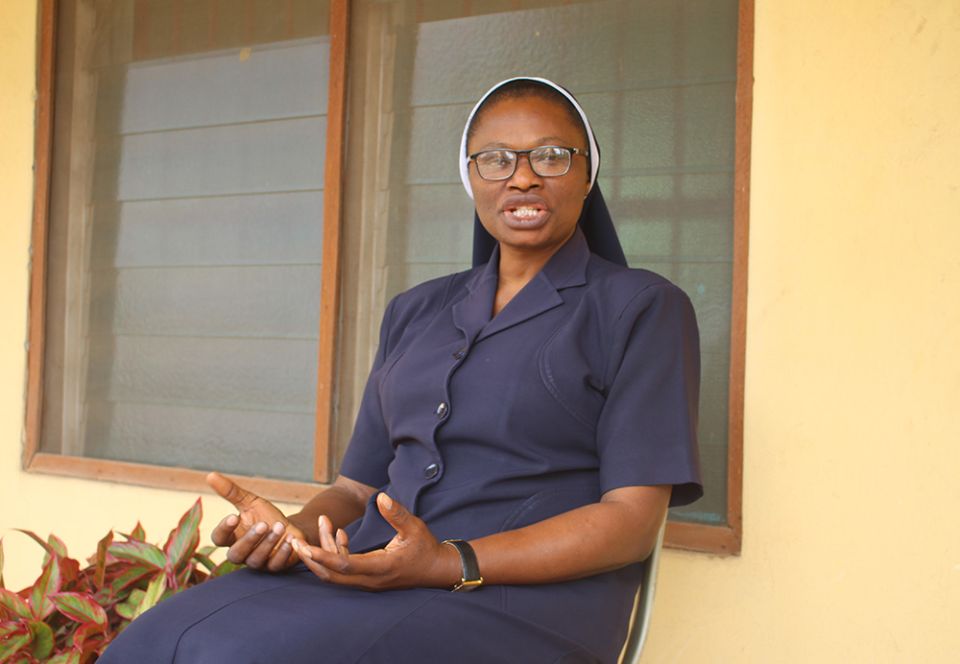
For more than a decade, Nigerian authorities have faced an uphill task in tackling the terrorism that has continuously placed Nigeria as one of the most terrorized countries in the world. According to International Christian Concern, Nigeria is the biggest killing ground where Christians are targeted with threats and violence. Tens of thousands have been murdered, millions displaced, and many more suffer from food, shelter and medical insecurity.
Auxiliary Bishop John Bakeni of Maiduguri in the state of Borno said terrorism and persecution of Christians have constantly been a topic of great concern for Nigerian citizens. "The attacks started in a very mild way, but as time went by, we have seen these realities been meted out on Christian communities in different parts of the country, especially in the northern part of Nigeria."
More than half of Nigeria's 217 million people are Muslim, while a little less than half are Christian. In the northern part of the country, where most of the killings take place, Islam stands as the dominant faith; Christianity claims the South, the direction where the violence is gradually shifting. (While authorities initially blamed the June attack on the Islamic State West Africa Province, in August the Nigerian Defense Ministry issued a statement that revealed that the persons connected to the Pentecost Sunday deadly attack were not associated with that group.)
7b nigeria attack CROP.jpg
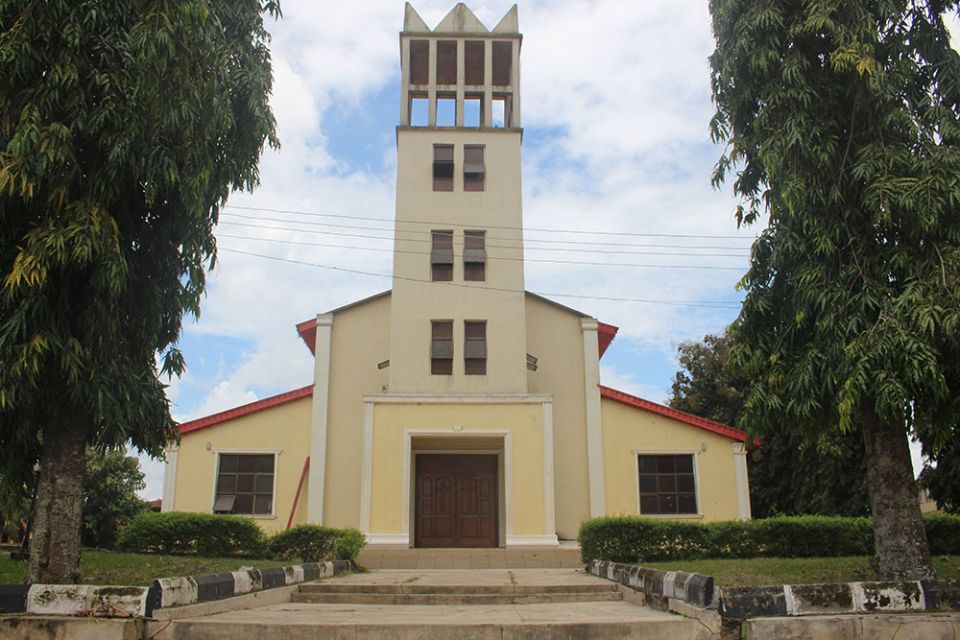
"There are challenges and difficulties that Christians, especially in the north, have been living with for so many years on the account that they are minorities in some communities of this region," Bakeni said. "And based on their faith, [they] have had to deal with maiming and killing of their loved ones and destruction of their properties over the years."
The growing persecution Christians in Nigeria face, he said, has become structural, such as political exclusion and preventing Christians from accessing their rightful education and social amenities, as well as the destruction of churches and marrying off daughters against the will of their parents.
All this, he said, is in addition to the increase in abductions of Catholic priests and Christian pastors, as well as the targeting of worshippers during church services.
"It is becoming palpable that the church is being targeted," Bakeni said. "There is every attempt to discourage and stop the spread of the Christian faith."
Blood at the altar
Fr. Andrew Abayomi had ended Mass and given his final blessing before sporadic gunshots began to ring out in the sky, accompanied by a deafening sound from a detonated explosive outside the church.
6 nigeria attack (3) RESIZE.jpg
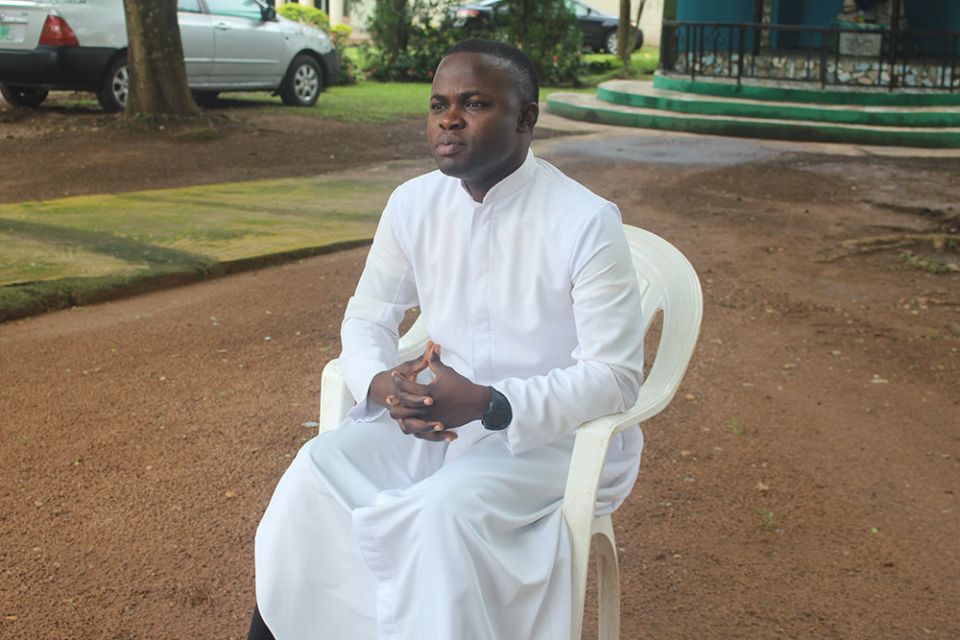
"Some brave members who ran to the altar helped me into the sacristy where some of the children and members were hiding," he told Global Sisters Report. "We then moved into the inner part where the restroom is before another explosive went off, but this time, inside the church."
Abayomi said the attack lasted more than 20 minutes.
Sam Adewale, special assistant on media to the community's monarch, recalled the surprise of the event fomenting confusion in the moment: "Before we could discover where it was happening, deaths had been recorded."
The day had become known as "Black Sunday in Owo," as disturbing footage and images of the bloodbath went viral on social media, sending shock waves that would reverberate through Nigeria's Christian community.
9b nigeria attack.JPG
Bade Salau, one of that day's survivors and the chairman of the church's Sacred Heart of Jesus and Immaculate Heart of Mary group, said his experience of the shooting was like a close shave with death. Adeluyi, who treated 74-year-old Salau at the hospital, said he didn't have any major complications and that his survival was mysterious.
Salau was shot in his chest and cheeks, and he attributed his survival to the scapular he wore around his neck and the rosery he had in his chest pocket.
"I saw four heavily armed men shooting at our members outside the church, but when they started shooting through the windows after the main doors had been shut, many of our members inside the church had to lay down under the pews for safety," he told GSR. "It was a horrifying experience for me, because 10 members of my family were also caught up in the shooting."
Abel Adenawo, who was shot in the foot, said the shooting happened like a movie scene. "I didn't believe that the gunshots were really happening until I saw one of the assailants, who had a cross bag on him, throw a grenade at the main doors. That was the first explosion we had."
8a nigeria attack CROP.jpg
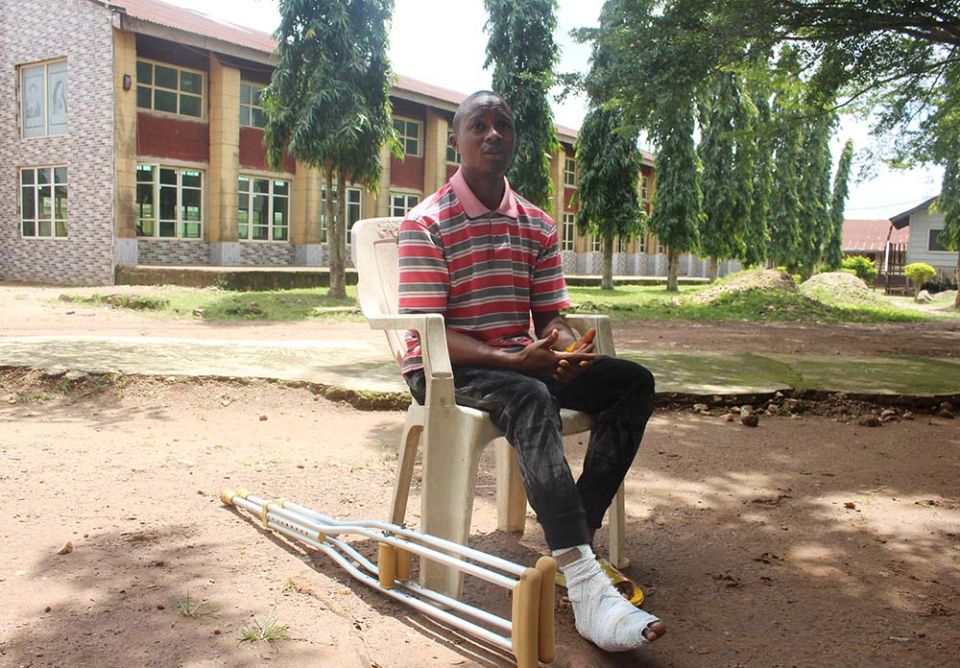
The man later "started shooting into the church through the windows, but I was lucky to have escaped," Adenawo told Global Sisters Report.
Sunday Masses have since been moved to a temporary location to one of the church's outstations in Owo, due to the level of destruction during the shooting. Renovations are scheduled for November of this year.
Beyond persecution
According to Open Doors, an international network monitoring global Christian persecution, a Christian is killed for their faith in Nigeria every two hours — roughly 13 Christians a day, or 372 a month. "In 2021, more Christians were murdered for their faith in Nigeria than in any other country," accounting for nearly 80% of Christian deaths worldwide with more than 4,650 believers killed, the group reported.
Advertisement
Advertisement
About three weeks before the church attack in Owo, a mob of Muslim students burned Deborah Samuel to death. Samuel was a young Christian woman accused of offending Islam for complaining about the incessant spamming of her class' WhatsApp group with religious messages.
About a month after Black Sunday, members of the United States Senate described the state of religious freedom in Nigeria as abysmal, and have challenged Secretary of State Antony Blinken to designate Nigeria a country of particular concern.
Fr. Aniedi Okure, director of Dominicans for Justice and Peace and its delegate to the United Nations, said the problem Christians face in Nigeria has gone beyond persecution, which he considers an oppression that most often results in not being allowed to worship or buy land to build churches.
"What happened to our brethren in Owo is outright jihad," Okure said. "I feel strongly that the jihadist has tried everything to throw Christians into war so it would be seen as a religious war," hence the targeting of churches and priests.
10a nigeria attack RESIZE.jpg
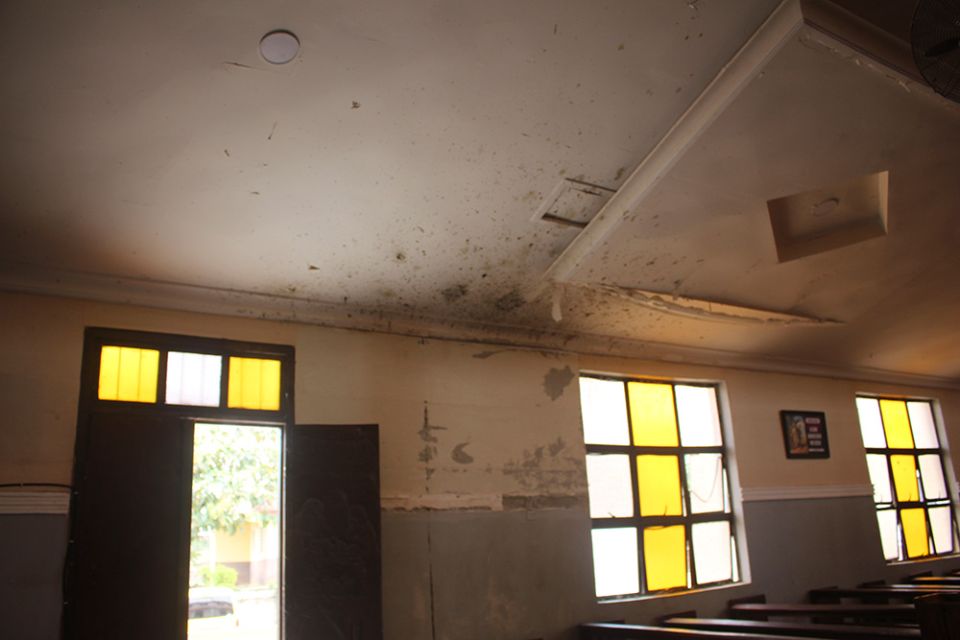
For instance, in Jos, a city dominated by Christians with a significant presence of the Hausa-Fulani Muslims, many Christians have been killed and some dumped into wells, with the religious rioting claiming the lives of both Christians and Muslims.
While Nigeria confronts these challenges, critics believe that attackers ride on the country's insecurity challenges — such as its inability to deal with suicide bombings, mass shootings, burning of police stations and churches, kidnapping, and policing the country's porous land borders — in order to foment trouble.
If Nigeria didn't face such security challenges, Okure said, the country would witness far fewer killings of nuns and priests.
"There are criminal elements riding on the security problems in Nigeria today," he said. "However, it is the responsibility of [President] Muhammadu Buhari's federal government to deal with this problem head-on."
*An earlier version of this story mistakenly noted one explosive outside the church and one inside. Rather, two explosions happened inside the church.
Like what you're reading? Sign up for GSR e-newsletters!

